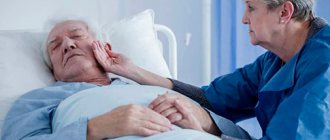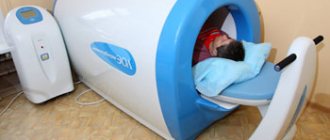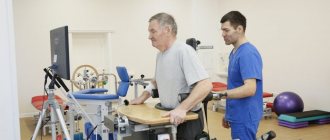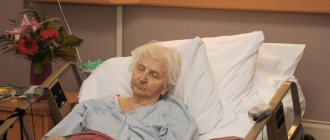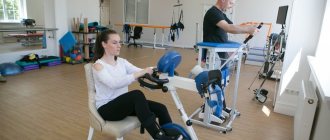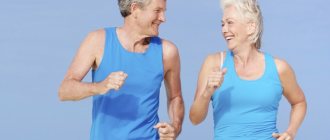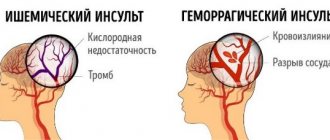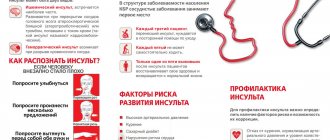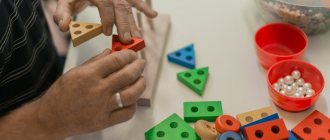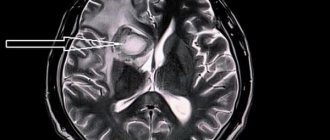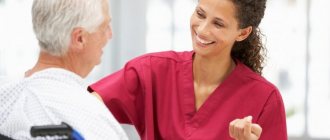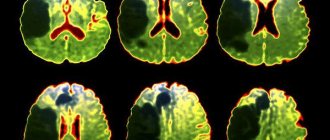Recently, the number of people who have had a stroke has increased. However, only a few can recover from it. Such patients need close care, which is not always possible to provide at home. Specialized centers help solve the problem. There are a huge number of them in Moscow, which complicates the task when choosing an institution. In this regard, the prepared review selected the best rehabilitation centers for 2021 in Moscow with a brief description of their activities, their pros and cons.
Centers
A high-quality rehabilitation program can be developed and carried out by specialists working in medical centers. Patients may require a comprehensive approach, sometimes requiring a procedure targeted at a specific area. The comprehensive program includes:
- Kinesiotherapy is a procedure that uses special therapeutic exercises to restore mobility. In some cases, various techniques are used to improve the quality of the procedure.
- Physiotherapeutic treatment, during which the patient’s muscles and joints are affected in various ways - from regular massage to electrical stimulation.
- Neuropsychological procedures, the main goal of which is to work out the patient’s psychological problems. Consultations are also held with the person’s relatives.
- Consultations for speech restoration.
- Carrying out special procedures to restore opportunities for self-service and adaptation to society.
- A course of special medications to improve blood flow in the brain. After the end of drug therapy, the risk of recurrent lesions and the occurrence of possible complications is reduced.
Rehabilitation is carried out in several stages; in total, treatment can last up to several years. It is best to be observed all this time in a specific medical institution, which employs qualified doctors and uses the latest technology. The main goals of medical centers for stroke rehabilitation are as follows:
- Restoring the health of the body and affected areas of the brain.
- Restoration of cerebral blood supply.
- Constant monitoring of the patient’s health and carrying out all necessary procedures.
Moscow
In the capital of the Russian Federation, a large number of medical centers have been opened to provide assistance and support to people who have suffered a stroke. They accept patients not only from Moscow, but also from other cities of Russia.
The staff of the medical centers are highly qualified specialists with extensive work experience, who constantly undergo advanced training courses and additional training. You can take a recovery course either free of charge (using a compulsory health insurance policy) or on a paid basis.
The following medical centers are distinguished in Moscow:
- The BiATi rehabilitation treatment clinic is located on Tsiolkovskogo Street, building 7, not far from Vnukovo airport (Tushinskaya metro station). The main feature is that it works with both adults and children. Another advantage is that the clinic interacts with specialists from Israel, so you can get advice “without leaving the checkout.”
- Treatment and Rehabilitation Center of the Ministry of Health of Russia - Ivankovskoye Highway 3, building 5. Domestic and foreign developments are used to treat and restore patients; specialists face similar problems every day.
Moscow region
In the Moscow region there are also clinics with a similar line of work:
- Central Clinical Hospital for Rehabilitation Treatment, located in Solnechnogorsk district, Goluboe village, no. 4. The former name of this medical institution is “Blue”. The clinic is working to restore the most important functions of the body.
- The Three Sisters clinic is located in the Shchelkovsky district. A small medical facility, with only 35 beds, working with stroke patients.
Rehabilitation in MoscowMoscow
Types of stroke, their consequences
Stroke is an acute disruption of cerebral blood supply, leading to oxygen deficiency with subsequent death of nerve cells. An attack lasting several minutes or hours leads to vascular occlusion or hemorrhage, leading to irreversible loss of important skills, confining patients to a wheelchair. There are two types of stroke: ischemic and hemorrhagic.
Ischemic stroke
diagnosed in 75-80% of cases of the disease. Under the pressure of a blood clot, the artery is compressed, the nerve cells at the site of the lesion die, and the functions for which this part of the brain is responsible suffer. Subsequently, the following disorders may occur:
- Motor problems
primarily affect the mobility of the face and limbs; there are also problems with chewing and swallowing. - Speech
disorders impair articulation, the ability to formulate thoughts; - Intellectual
and emotional changes in character, leading to the development of dementia, lapses in memory, concentration, and behavioral deviations.
Hemorrhagic
- characterized by rupture of a vessel with hemorrhage into the brain tissue or adjacent areas. The subarachnoid type is the rarest but has a high mortality rate and usually results from traumatic brain injury. The consequences of blood entering the brain inevitably affect the patient's condition. When the right hemisphere is damaged, paralysis of the left side of the body, loss of vision, and problems with swallowing occur. If the left hemisphere suffers, the right side is paralyzed, disorders of thinking and speech occur, and orientation in time is lost.
Services
The main services provided to patients after a stroke are the restoration of certain functions of the human body. The basis for rehabilitation is physical therapy. This procedure takes at least 2-3 hours per day. The attending physician and nurses monitor the patient’s condition and adjust the program.
An important component of the process is the restoration of speech functions (if necessary), as well as work with a psychologist. Carrying out various examinations is also considered a separate service, without which it is difficult to develop a further recovery program.
The program gradually becomes more complex until the person fully recovers. It all can start with relatively simple actions - walking, interacting with objects and self-care. The final stage can be quite difficult - learning to drive a car again, developing fine motor skills (brush teeth, tie shoelaces, etc.).
For bedridden patients
Rehabilitation of bedridden patients is a complex procedure that requires a special approach from medical personnel. Typically rehabilitation includes the following:
- Prevention of bedsores.
- Medical massage.
- Using special programs and techniques to restore the functionality of the body.
What exercises will help you recover?
At the initial stage, while the patient cannot move independently, a nurse or family helps to perform passive exercises. After a stroke, the patient often loses control over the body, and regular exercise will help recreate important motor centers in the brain. The complex includes warm-up, flexion, extension, lateral movements, and rotation of the limbs. The patient himself mentally makes simple movements with his arms and legs, thereby strengthening the connections between the responsible areas of the brain and parts of the body. Persistence and the will to recover will certainly ensure the effect of such exercises. Active gymnastics is carried out in a lying, sitting or standing position.
As you gain lost skills, you should gradually increase the load, making the exercises more difficult. In a lying position, the pensioner is asked to develop his arms, reaching for objects located at different heights, performing movements for coordination and strengthening muscles. When an elderly person can sit down, it is useful to bend the spine synchronously with breathing, lift the legs, bend them at the knee and pull them towards the chest, and bring the arms together. After the patient begins to get up, his capabilities expand, allowing him to diversify therapeutic exercises. It's time to start bending, turning, walking in place, and active movements of the limbs. Charging at this stage is as close as possible to health-improving techniques for the elderly.
Boarding houses and sanatoriums
The main advantage of visiting and receiving treatment in boarding houses and sanatoriums is their location. In most cases, medical facilities are located in the region, in picturesque places with beautiful and good nature. Patients can return to their normal lives in very comfortable conditions - spending time walking in beautiful surroundings.
Quite often, sanatoriums and boarding houses have additional services and benefits. Among them is the presence of a beach (on the banks of a river or lake), a sauna or bathhouse. There may also be a SPA and various additional procedures that allow you to combine recovery with a pleasant pastime.
boarding house in MoscowMoscow
Medication-assisted recovery after stroke
Treatment with drugs begins immediately after the onset of the crisis. In case of ischemic stroke, the patient is given thrombolytics, which dissolve blood clots, to restore blood flow. Additionally, medications that prevent blood clotting may be prescribed. In some cases, such therapy helps to avoid paralysis and other undesirable consequences. If blood pressure readings are much higher than normal and there is a suspicion of a hemorrhagic stroke, it is necessary to take antihypertensive drugs. Vasodilators are contraindicated; they aggravate the situation by affecting healthy areas of blood vessels and increasing the load on damaged areas. After stabilization of the condition, treatment is carried out with nootropics, which restore neural connections and protect the nervous system, and decongestant, vasoactive drugs that improve blood circulation and metabolic processes. The effective action of auxiliary techniques used in specialized rehabilitation centers has been proven: laser and magnetic therapy, acupuncture, kinesitherapy and Bobath therapy.
Prices
The cost of staying in a sanatorium or boarding house depends on several factors. Among them are the location of the medical institution itself, as well as the availability and quantity of various additional services. Also, the final cost will depend on what restorative procedures the patient will need, whether additional examinations, tests, and so on are necessary. The way you eat is also important.
In some sanatoriums, the conditions are no worse than in resort hotels - patients can eat at a buffet, undergo various cosmetic procedures, and so on. The cost of staying for one day in a sanatorium located in the Moscow region varies from 2,500 to 4,500 rubles.
Estimated cost for a number of services
What not to do after a stroke
To avoid another attack of a dangerous disease, it is important to know what you can and cannot do after a stroke. Since any of its varieties is in one way or another associated with a violation of the condition of blood vessels, it is necessary to exclude all factors that negatively affect the cardiovascular system and provoke pressure surges. These include bad habits, stressful situations, sudden climate changes, and the use of certain types of transport.
- Alcohol
causes heart disease, atherosclerosis, hypertension, and has a detrimental effect on the nervous system. Doctors strongly advise you to refrain from drinking alcohol during the rehabilitation period and after recovery. - Smoking
is a common cause of death in stroke patients in the first year of recovery: cigarette smoke increases the risk of blood clots, vasospasm, and damages nerve cells. Smokers should make every effort to quit the deadly habit. - driving a car
for six months until the brain functions that ensure concentration, reaction, and evaluative thinking are restored. In addition, road conditions can provoke a sharp rise in pressure, which is also undesirable for people with poor health. - Flying
on an airplane is not only fraught with pressure changes and oxygen deficiency, but can also cause strong emotions in the passenger. It is recommended to consult a doctor before traveling. - The bathhouse
is considered a generally recognized means of healing, but only for physically strong people. Until the body returns to normal, increased temperature and high humidity are contraindicated for the elderly. However, in the future, the doctor may give permission to visit a bathhouse or sauna at a moderate temperature.
Contacts
To register at a medical center for rehabilitation after a stroke, you can use the medical assistance number “03” or go to one of the portals - State Services or the Moscow Mayor’s portal mos.ru. To contact a boarding house or sanatorium, you need to call the reception of this medical institution or contact the main clinic to which it belongs. Registration is also possible through the official website.
Addresses
Most medical centers are located in Moscow, while sanatoriums are located in the Moscow region. The reason for this is simple and understandable - in the first treatment, patients are given first aid, and the first (and most important) stage of rehabilitation is carried out. After the restoration of basic functions, a number of relatives and friends try to send their relatives to a more pleasant place where they can recover and, if possible, relax.
Phones
To contact medical institutions, you need to know their contacts. For this purpose, you can use the table below.
| Name | Telephone | Official site | Address | Cost of stay, rubles/night |
| "Rejuvenating apple" | +7 | my.ru | 6th Luchevoy Prosek, building 19, building 1, floor 3 | 8500 |
| Moscow Scientific and Practical Center for Medical Rehabilitation, Rehabilitation and Sports Medicine, Department of Health, Branch No. 3 | +7 | cmrvsm.ru/filial-3 | 2nd Volskaya st., 19, building 1 | — |
| Center for Speech Pathology and Neurorehabilitation | +7 | cprin.ru | Nikoloyamskaya st., 20, building 1 | From 108,000 (cost of the entire program) |
| Federal State Budgetary Institution Federal Center for Brain and Neurotechnology FMBA of Russia | +7 | ftsmn.rf | st. Ostrovityanova, 1, building 10 | — |
| "Overcoming" | +7 | preo.ru | st. March 8, 6A, p. 1 | — |
Rehabilitation abroad
There are rehabilitation centers after a stroke in Belarus (“Eleos”, prices can be found here: https://eleos.by/stoimost-uslug), in Ukraine (In Kyiv, https://fungodoctor.com.ua/ru/, Dnepropetrovsk - Eden). This is a medium-sized medical institution, which, however, is well established and trustworthy. However, before contacting, it is recommended to ask the management and staff in detail about the progress of therapy, course and recovery time using the contacts provided on the websites.
If there is a desire, and also in difficult cases, rehabilitation after a stroke in Israel is recommended.
An example is the famous Reut clinic, which has been accepting patients for more than one year. The process begins with identifying the degree of disability, after which an appropriate course is prescribed. It is selected individually.
The cost varies between 600-1000 dollars per day.
